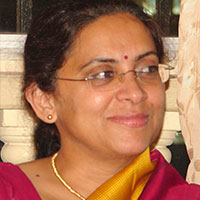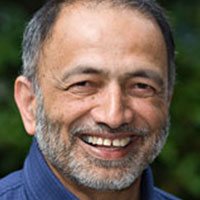A New Education Policy is being formulated in India based on a time-bound grassroots consultative process. As a contribution to the discussions, Rukmini Banerji of the education NGO Pratham and Ashok Kotwal, Editor-in-Chief, I4I, are hosting an e-symposium on ideas for reforms in education policy. Over the next few days, the e-symposium will bring together key findings from recent research in education and experience-based insights by stakeholders from academia and civil society.
Tweet using #NewEduPolicy
The last parliamentary election brought in a new government on the promise of a bright economic future. The level of aspirations has been sky high. The Prime Minister is touring around the world to invite multinational investment to carry out his ambitious agenda of ‘Make in India’. Yet, all this is likely to remain a pipe dream if a vast majority of the labour force remains unskilled and under-educated. Projects like ‘Skill India’ cannot take off if the youth to be skilled was not schooled properly. How can one be a good machinist if one cannot read or divide? Yet, the state of affairs for primary education in India leaves much to be desired.
Perhaps, due to the realisation of this fact, a New Education Policy (NEP) is in the process of being formulated in India. The government has laid out a process that was designed to begin with village-level consultations and followed by discussions at block, district, state, regional and national levels. Half a dozen themes have been identified in the background documents for this policy. These notes are short – a page or two of text and some questions. (http://mhrd.gov.in/nep-new). The themes cover school education and also higher education. The NEP is due to be announced in December.
The last version of the National Policy of Education was formulated in 1986 with some modifications in 1992. In the last 15 years, the efforts to universalise elementary schooling have dominated the education landscape: the national Sarva Shiksha Abhiyan (SSA) scheme was rolled out, education cess was imposed and key legislations like the Right to Free and Compulsory Education (RTE) were put in place. These commitments at the highest policy level have ensured that practically every Indian child is enrolled in school.
The success of the schooling movement in India has led to new set of challenges. Now that most children are enrolled in school and are staying in school longer and longer, a different set of questions are coming to the fore. Questions that are being debated include: What kind of schools do we want? What kind of teachers do we need? What are effective ways of selecting, preparing and supporting teachers? What should children learn that prepares them for life? How should teaching-learning happen? In what ways can schooling and learning be organised to achieve maximum impact for most? How should schooling be governed? Who should be held accountable for what and when? What resources are needed? What are the mechanisms to ensure that expenditure is leading to desired outcomes? For individuals and institutions, how should the balance be maintained between immediate needs and longer-term development of capacities? And so on ….
Accompanying changing challenges in the education landscape, there has been a growing body of research on different aspects of school education in India. How does this accumulation of systematically collected evidence fit into the process of re-thinking and re-working education policy and practice? Among other features, this literature reflects advances in both qualitative and quantitative methods, and increase in longitudinal approaches to understanding changing lives, schools and societies. More studies are now available on what happens in classrooms and on what children are able to do at different stages. The availability of data and information also opens up possibilities of analysing what has ‘worked’ or not so that these learnings can be fed into the next cycle of thought and practice.
We believe that this e-symposium on ‘Ideas for Reforms in Education Policy in India’ is a timely one. It is a first attempt to bring together on to one platform key findings from recent research in diverse fields and disciplines that we believe can provide important inputs. Since I4I is widely read within the government and by other stakeholders, we feel the e-symposium could make critical contributions to how education policy is shaped in India.
Below are the links to the pieces from the e-symposium:
- New Education Policy: An opportunity not to be lost - Wilima Wadhwa (ASER)
- Ten steps to transform the quality of education in India - Sridhar Rajagopalan (Educational Initiatives)
- Ensuring learning at the elementary stage: Are children school-ready? - Venita Kaul, Aparajita Bhargarh Chaudhary (Ambedkar University)
- Holding the teacher education enterprise accountable for its performance - Amita Chudgar (Michigan State University)
- Building an outcome-focused approach to elementary education financing in India - Yamini Aiyar (Accountability Initiative)
- What can the private sector offer Indian education? - Abhijeet Singh (University of Oxford)
- Assessments in school education: The current debate - Azim Premji Foundation
- Of Picasso and Cezanne: Early achievers vs. late bloomers - Sonalde Desai, Reeve Vanneman (University of Maryland)
- Getting reading right, right now - Lant Pritchett (Harvard Kennedy School)
- New Education Policy: Putting money where learning is - Anit Mukherjee (Center for Global Development)
- ´Teaching at the right level’: Solutions for low learning levels in India - Rukmini Banerjee (Pratham), Esther Duflo (Massachusetts Institute of Technology)
- Five priorities for the New Education Policy - Ashish Dhawan (Central Square Foundation)
- Enabling inclusive education - Renu Singh (Young Lives India)
- New Education Policy: Incorporating a ‘Right to Learn’ Act - Geeta Gandhi Kingdon (University College London)
- New Education Policy: Addressing institutional concerns - Kiran Bhatty (Centre for Policy Research).
- Reservation under RTE: Status of implementation and way forward - Ambrish Dongre (Centre for Policy Research) & Ankur Sarin (Indian Institute of Management, Ahmedabad).




 18 November, 2015
18 November, 2015 





Comments will be held for moderation. Your contact information will not be made public.